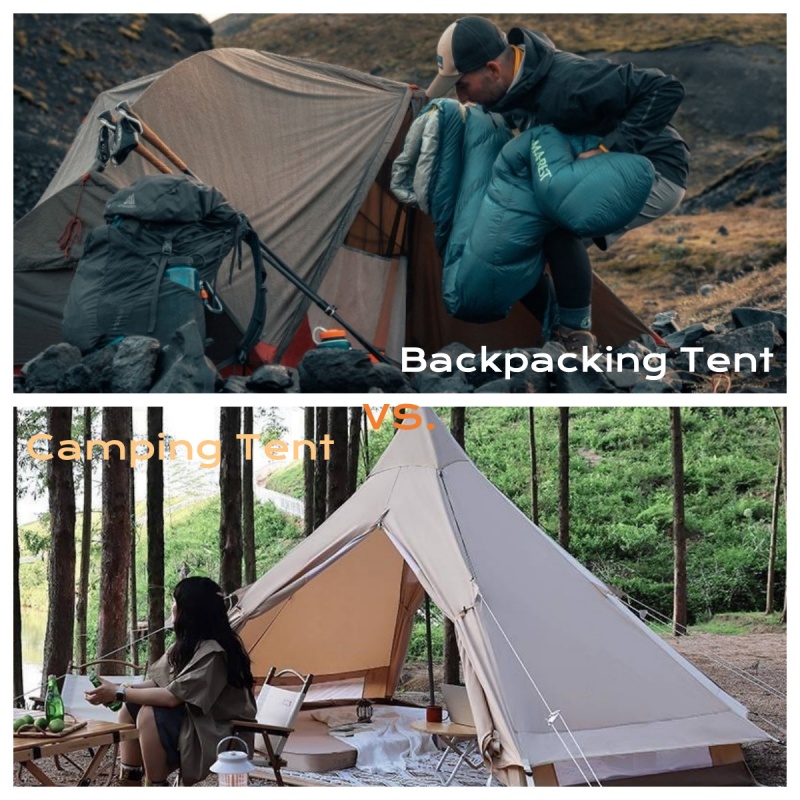BACKPACKING TENT VS. CAMPING TENT

At first glance, all tents might seem like camping tents, but there are distinct differences between a backpacking tent and a camping tent, and selecting the right one can significantly impact your outdoor experience.
From personal experience in tents ranging from one-person to eight-person capacities, I can attest that choosing the appropriate tent can either make or break your trip. Whether you're heading to a local campground or embarking on an international backpacking adventure, having the right tent is crucial.
Differences Between Backpacking and Camping
While backpacking and camping are sometimes used interchangeably, they entail unique experiences. Both involve sleeping outdoors and utilizing sleeping bags, but the manner of setup and gear selection differ.
Backpacking entails carrying gear in a backpack and hiking to your camping spot, whether it's a lengthy thru-hike or a short trek to a nearby lake. Essentially, if you're trekking miles to your camping destination with gear on your back, it's backpacking.
Camping, or car camping, on the other hand, involves staying outdoors but allows you to set up camp near your vehicle, typically in a campground setting. As long as you're not venturing far from your parking spot with your gear, it falls under camping.
Differences Between Backpacking Tents and Camping Tents
While the distinctions between backpacking and camping activities may seem semantic, the differences in tent designs are substantial.
It's important to note that while backpacking tents can be used in camping scenarios, the reverse is not true; hauling a full-sized camping tent on a backpacking trip is impractical.
Designed to be carried in a backpack, backpacking tents prioritize weight and packability. Ranging from one to three-person setups, they typically weigh between 1 to 5 pounds. They offer versatility, suitable for car camping, single-night trips, or multi-night backpacking excursions.
Backpacking tents often feature simplified tent poles, making them easier to set up and store in your pack.
Compared to backpacking tents, camping tents provide more room, weight, and features. They prioritize comfort over portability since they're not meant to be carried for long distances. Camping tents can accommodate larger groups and are constructed with more durable materials.
Factors to Consider When Choosing
Conclusion
Whether you're backpacking or camping, your tent serves as your home away from home. Selecting the right tent tailored to your needs and preferences ensures a comfortable and enjoyable outdoor experience. So, whether it's a lightweight backpacking tent for remote trails or a spacious camping tent for family getaways, choose wisely and embark on your outdoor adventures without delay.
